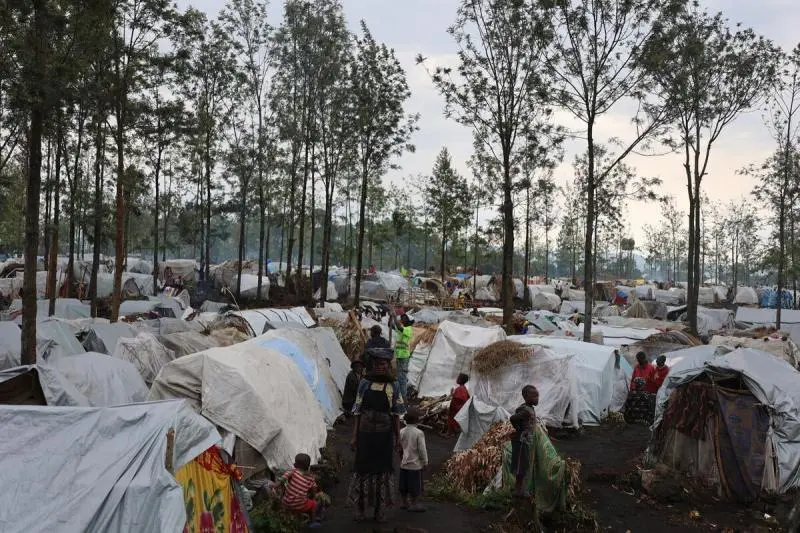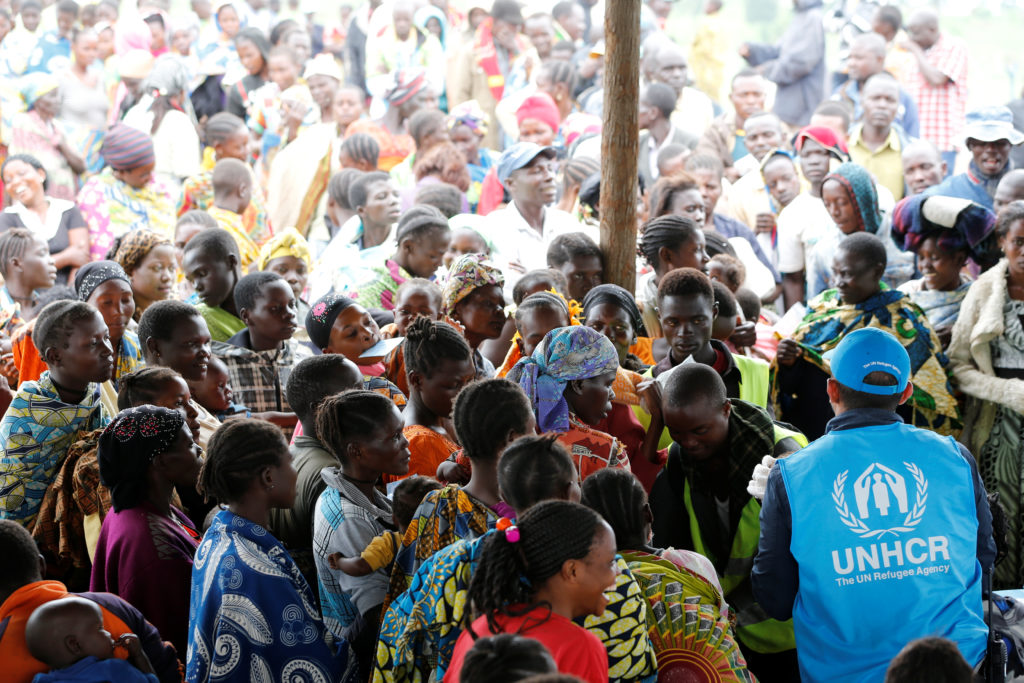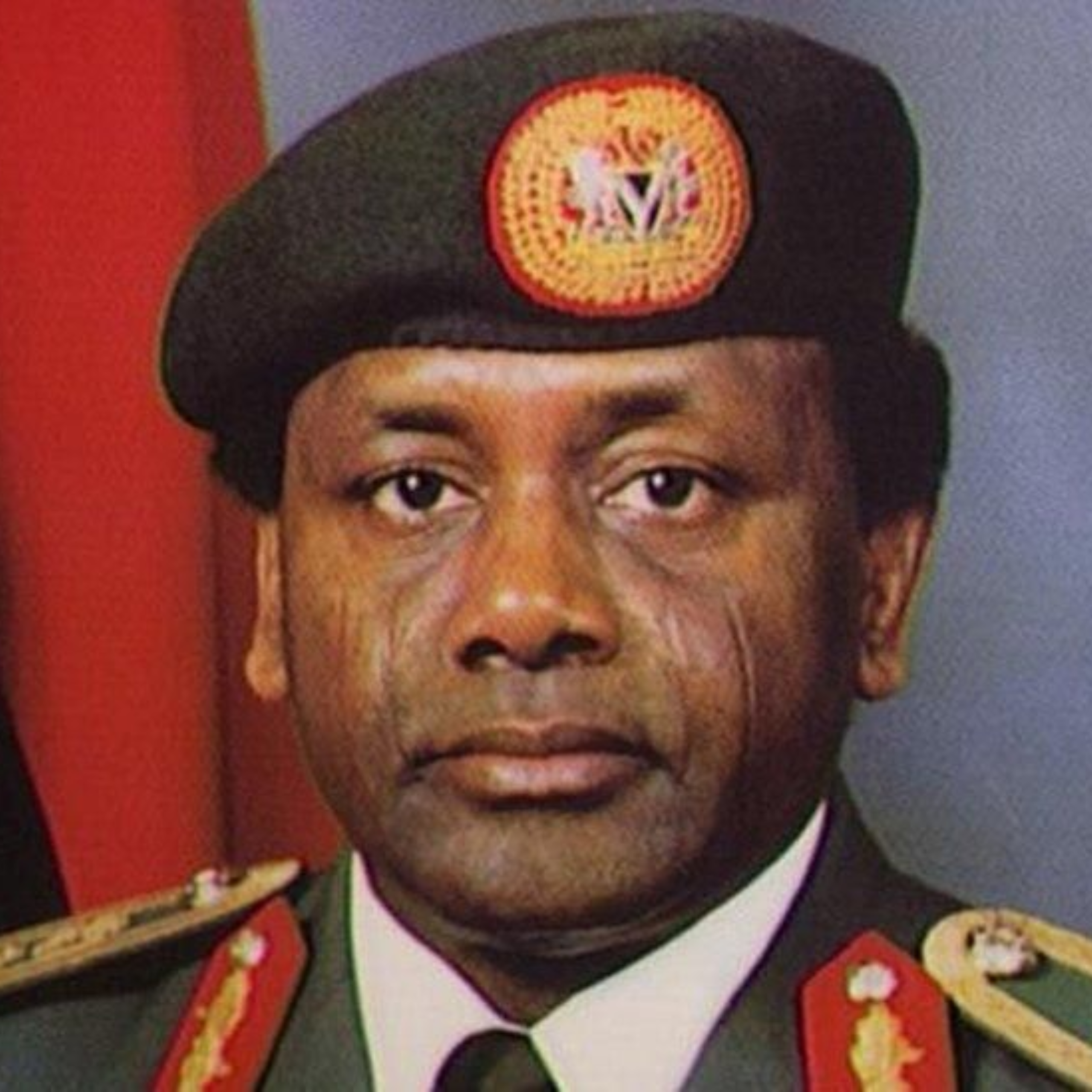The Democratic Republic of the Congo (DRC) is currently in the grips of a severe crisis, yet the world’s attention remains largely elsewhere. Children, in particular, are bearing the brunt of this crisis, forced to flee their homes and schools, facing violence, hunger, and disease on a daily basis. Families have lost their livelihoods, and access to medical care and education for children is severely limited.
Recent Developments
- U.S. Condemns M2 Rebels, Calls for Rwanda’s Action
- UN Security Council Urged to Address Escalating Conflict in DRC
- African Union Calls for Dialogue to Ease Tension in Eastern DR Congo
Since March 2022, the DRC has been engulfed in intense conflict, resulting in thousands of deaths and forcing many to seek shelter in churches, schools, or large camps.
The conflict in the DRC is multifaceted, with clashes involving militant groups, extrajudicial killings, political violence, and rising tensions with neighboring Rwanda all contributing to the turmoil. The United Nations High Commissioner for Refugees (UNHCR) has reported a record high of 6.9 million internally displaced people, primarily in eastern Congo, where violence has rendered large parts of the country unsafe.
The roots of the conflict in the DRC can be traced back to the aftermath of the 1994 Rwandan Genocide, which saw the influx of Rwandan refugees, including Hutu extremists who organized militias within the Congo. This led to the First Congo War (1996–1997) and eventually the Second Congo War (1998-2002), resulting in millions of deaths and a humanitarian disaster.
Recent developments include a ceasefire agreement between the DRC and Rwanda to reduce military presence on their shared border. However, tensions remain high, and there are fears that political violence could escalate as the country prepares for national elections. The DRC has also ordered international and regional forces to leave, raising concerns about a security vacuum.
The UNHCR report highlights the complex humanitarian crisis in the DRC, with decades of armed conflict, human rights violations, and gender-based violence leading to the displacement of millions of people. The situation is expected to worsen in the coming months, with the withdrawal of MONUSCO and the presidential elections likely to prolong displacement and drive more people into neighboring countries as refugees.
One of the numerous sites for internally displaced people has emerged in North Kivu, where 1.2 million individuals have been compelled to abandon their residences since March 2022. © UNHCR/Blaise Sanyila

In the face of these challenges, UNHCR is prioritizing community-based protection, health, education, and livelihoods in its response efforts. It is also focusing on gender-based violence prevention, risk mitigation, and response mechanisms, as well as ensuring the rights of forcibly displaced people, especially women and girls. The report underscores the need for immediate action to protect the most vulnerable in the DRC and highlights the challenging response environment in the face of multiple crises.
Update: Escalating Violence in the DRC: U.S. Condemns M23 Rebels, Calls for Rwanda’s Action
The United States has strongly condemned the escalating violence in the eastern Democratic Republic of Congo (DRC) caused by the Rwanda-backed M23 armed group. In a statement, State Department spokesperson Matthew Miller deplored the group’s actions and called on Rwanda to remove sophisticated ground-to-air missiles that are threatening lives in the country’s east.
Fighting has intensified around the town of Sake, 20 kilometers from Goma, between M23 rebels and Congolese government forces. The violence has resulted in dozens of casualties, including soldiers and civilians, over the last 10 days.
“We call on M23 to immediately cease hostilities and withdraw from its current positions around Sake and Goma,” Miller said, emphasizing the need to protect civilians and humanitarian actors in the region.
The United States also condemned Rwandan support for M23 and called on Kigali to withdraw all Rwanda Defense Force personnel from the DRC and remove its surface-to-air missile systems, which threaten the lives of civilians, peacekeepers, and commercial flights in eastern DRC.
The conflict in the DRC has displaced millions of people, with recent clashes pushing tens of thousands of civilians to flee towards Goma, which is practically cut off from the country’s interior.
The accusations of Rwandan support for the rebels stem from allegations of a bid to control vast mineral resources, an allegation Kigali denies.
The United Nations forces in the DRC have been in the region for nearly 25 years but have been criticized for failing to protect civilians from armed groups. The situation in the DRC remains complex and volatile, with the international community calling for immediate action to protect civilians and address the root causes of the conflict
UN Security Council Urged to Address Escalating Conflict in DRC
In a recent UN Security Council briefing on the Situation Concerning the Democratic Republic of the Congo (DRC), Ambassador Robert Wood, the Alternative Representative for Special Political Affairs, highlighted the urgent need for the international community to address the escalating conflict in the region.
Ambassador Wood began by acknowledging the challenging circumstances under which the UN Mission in the DRC (MONUSCO) operates, praising their efforts to protect civilians and provide humanitarian assistance. However, he emphasized that immediate action is required to end the fighting in eastern DRC and de-escalate tensions between the DRC and Rwanda.
“The recent attacks by the UN-sanctioned, Rwanda-backed M23 armed group on Sake and near Goma are unacceptable,”
Robert Wood, deputy permanent representative of the United States to the United Nations
Ambassador Wood stated. He called on M23 to immediately cease hostilities and withdraw from the area, as it committed to regional leaders. He also urged Rwanda to end its support to M23, withdraw Rwandan forces from Congolese territory, and remove any surface-to-air missile systems that pose a threat to MONUSCO.
Expressing concern over the collaboration between elements of the Congolese armed forces and armed actors like the FDLR, Ambassador Wood called for an immediate cessation of support and coordination with such groups. He condemned any group that espouses genocide ideology and recognized the FDLR as a significant security threat to Rwanda.
Ambassador Wood underscored the importance of confidence-building measures between Rwanda and the DRC, emphasizing the need for both countries to renew their commitment to the ceasefire and promote accountability for human rights abuses. He also offered U.S. intelligence and diplomatic resources to assist in monitoring any agreed pause in the fighting.
In conclusion, Ambassador Wood urged the Security Council to be diligent in its assessment of MONUSCO’s withdrawal from South Kivu and to ensure that the DRC security forces can provide stability and security for civilians as peacekeepers depart. He called for a return to regional diplomatic efforts and reiterated the U.S.’s support for the sovereignty and territorial integrity of the DRC.
The situation in the DRC remains precarious, with millions of civilians at risk. The international community must act swiftly and decisively to protect civilians and promote peace in the region.
African Union Calls for Dialogue to Ease Tension in Eastern DR Congo
In a recent statement from the Bureau of the Chairperson of the Commission, issued on 21st February 2024, the Chairperson of the African Union Commission, Moussa Faki Mahamat, expressed deep concern over the ongoing tension in Eastern Democratic Republic of Congo (DRC). He emphasized the need for a rapid de-escalation of the situation.
“The African Union is deeply concerned about the continuous tension in Eastern DRC and reiterates its call for rapid de-escalation,”.
The Chairperson called upon regional leaders, especially those from the DRC and Rwanda, to prioritize dialogue. He highlighted the efforts of African mechanisms led by President João Lourenço of Angola and President Uhuru Kenyatta of Kenya, urging them to work collaboratively and fraternally to find a reasonable pathway to resolve political differences, regardless of their nature.
“The integrity, security, sovereignty, and stability of all states in the region must necessarily be assured, and the lives of the civilian population completely protected,”
Mahamat emphasized.
The statement reiterated the African Union’s stance that there is no military solution to the problems and disagreements within the African family. Mahamat called on all foreign powers to refrain from interfering in the internal affairs of African countries, particularly those in the Great Lakes Region.
“The African Union forcefully repeats that there will not be any military solution to problems and disagreements within the African family,”
said Mahamat.
The African Union Commission stands ready to support efforts aimed at achieving lasting peace and stability in the region, and urges all parties involved to engage in constructive dialogue to resolve the current tensions in Eastern DRC..
How You Can Help:
- Donate: Support organizations like UNHCR, Doctors Without Borders, and Save the Children, which are providing vital assistance to displaced people in the DRC.
- Raise Awareness: Share information about the crisis in the DRC on social media and encourage others to get involved.
- Advocate: Call on your government to support humanitarian efforts in the DRC and to work towards a peaceful resolution of the conflict.
- Stay Informed: Keep up to date with the latest news from reliable sources to better understand the situation and how you can help.
For further information, please refer to the full press statement by Ambassador Robert Wood at the UN Security Council briefing on February 20, 2024.


